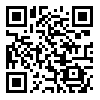مجله رویش روانشناسی از دادن گواهیهای کاغذی معذور است. لطفا تقاضا نکنید. همه گواهی ها در صفحه شخصی کاربران موجود است.
year 9, Issue 2 (Spring 2020 2020)
Rooyesh 2020, 9(2): 91-100 |
Back to browse issues page
Download citation:
BibTeX | RIS | EndNote | Medlars | ProCite | Reference Manager | RefWorks
Send citation to:



BibTeX | RIS | EndNote | Medlars | ProCite | Reference Manager | RefWorks
Send citation to:
Hashemi T, Ahmadi Z, Farajpour Niri S. (2020). Presenting a Model for the Structural Relationships between Attachment Styles and Internet Addiction According to the Mediating Role of Self-Esteem. Rooyesh. 9(2), 91-100.
URL: http://frooyesh.ir/article-1-1806-en.html
URL: http://frooyesh.ir/article-1-1806-en.html
1- Professor of psychology, Faculty of Education and Psychology, University of Tabriz, Tabriz, Iran
2- Ph. D candidate in psychology, Faculty of Education and Psychology, University of Shahid Beheshti, Tehran, Iran. ,aylarakrami@yahoo.com
3- M.A in clinical psychology, Faculty of Education and Psychology, ز
2- Ph. D candidate in psychology, Faculty of Education and Psychology, University of Shahid Beheshti, Tehran, Iran. ,
3- M.A in clinical psychology, Faculty of Education and Psychology, ز
Abstract: (3670 Views)
This study aimed to determine the structural relationships between attachment styles and internet addiction, regarding meditating the role of self-esteem. This study was descriptive-correlational. Participants were 300 undergraduate students of Tabriz University in 2018-19, selected by multistage cluster sampling. The instruments were the internet Addiction Questionnaire (Yang, 1998), Adults Attachment Inventory (Hazan and Shaver, 1987) and Self-esteem Scale (Rosenberg, 1979). Data were analyzed by using the structural equation modeling method and the results showed that the measured model has a relatively favorable fit with the theoretical model (RMSEA=0.04, CFI=0.91, GFI=0.92). Attachment styles, in addition to their direct role, could significantly explain the symptoms of internet addiction through self-esteem. Based on these findings, it can be concluded that deficits in parental functions and insecure relations with caregivers affect individuals' self-esteem, and fluctuating self-esteem is associated with problematic behaviors like extreme tendency to the internet. It is suggested to consider the role of attachment styles and self-esteem in prevention and treatment interventions of internet addiction.
Type of Article: Research |
Subject:
General Psychology
Received: 2019/09/5 | Accepted: 2020/03/8 | ePublished: 2020/04/29
Received: 2019/09/5 | Accepted: 2020/03/8 | ePublished: 2020/04/29
Send email to the article author
| Rights and permissions | |
 |
This work is licensed under a Creative Commons Attribution-NonCommercial 4.0 International License. |







